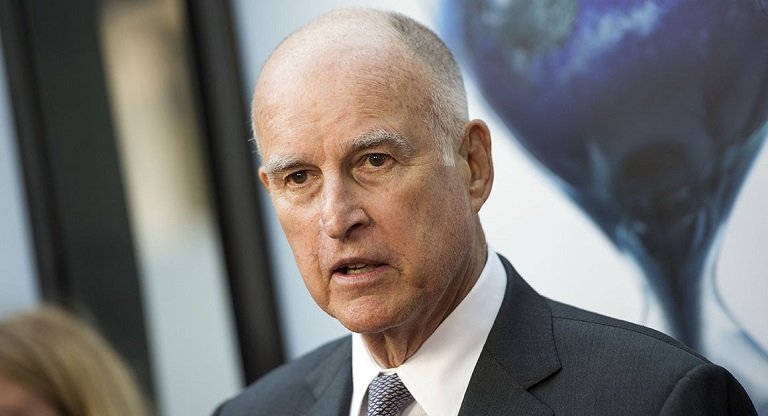Business
California considers taxing residents for sending texts
The proposal by California’s Public Utilities Commission to impose a “texting tax” raised more questions Wednesday than answers.


The proposal by a California commission to impose a “texting tax” raised more questions Wednesday than answers. Here’s what we know so far:
Who is behind this?
The proposal was filed by California’s Public Utilities Commission (CPUC), a group that regulates public utilities operating in the state. In addition to communications services, such as cell phone carriers, the group is also responsible for regulating energy, water and transportation over rail systems, and passenger cars.
Why are they doing this?
The proposal hopes to use the tax to help fund access to telecommunications services for lower-income California residents, making up for lost revenue the state used to receive from a tax on voice calls.
As mobile phone users shifted from making phone calls to using messaging services to communicate, voice call revenue for these state programs has dropped by roughly a third, from $16.5 billion in 2011 to $11.3 billion in 2017, according to filings from the commission.
More: California considers charging residents a tax for sending text messages

Loews Hotels has a “Chat Your Service” texting option. Four Seasons Chat has just debuted. (Photo: Loews Hotels)
Who would be taxed?
It’s not entirely clear.
Jim Wunderman, president and CEO of the Bay Area Council, a California business advocacy group, said he found the details vague.
“I don’t know how clear the CPUC has been with answering these questions,” Wunderman said. “Does the sender pay? Does the receiver pay? What if you move out of state but you keep the California number? What if you drive down to Reno, Nevada and get a phone? Can you avoid the charge then? These are all things that would be really hard to resolve.”
What would be taxed?
According to the filing, the CPUC is proposing to tax traditional text messages known as SMS or MMS. Unlike iMessages on iPhones or using the text feature in WhatsApp, the texts the CPUC would tax are ones sent over a mobile phone’s built-in messaging app, (iPhone users will know these as “green bubbles” in the Messages app). The CPUC is also seeking to retroactively tax users for the last five years.
Wait, they want to tax me for something from five years ago?
Yes, under the current filing the tax would be retroactive to five years ago though exact details on what would be charged and how are unclear.
What about iMessage, WhatsApp, Facebook Messenger?
Messaging apps and services like Apple’s iMessage, Facebook’s Messenger or WhatsApp, Google’s Hangouts or apps like Snapchat and Kik would be exempt from the tax under this current proposal. Referred to as “over the top” services, or OTT, these apps use the internet to deliver their messages, which is a separate form of delivery from traditional text messages.
READ: Leopard kills Buddhist monk meditating in forest
It is unclear if an updated form of text messaging, known as Rich Communication Services (RCS), which isn’t yet widely available would be taxed. This new standard is being designed to replace traditional SMS and MMS texting that phones and carriers currently use. Like WhatsApp, Facebook Messenger and other apps it will rely on the internet to send messages, allowing for additional features such as end-to-end encryption, stickers, “bubbles” to let you know if the other person is typing and read receipts if they’ve read your message.
How much money are we talking about?

(Photo: Getty Images)
The CPUC hasn’t revealed how much the tax would be, but in its filing it refers to the fee as a “surcharge” instead of a tax on a particular number of text messages sent or received.
Surcharges are common for cell phone users, with a number of these types of fees at the bottom of their bills, often with each charge running less than a couple of dollars a month per user (exact taxes and fees may vary by state).
A spokesperson from CTIA, a trade group that represents the U.S. wireless communications industry, was unable to confirm exactly how much the California Utilities Commission wants to charge.
“We hope that the CPUC recognizes that taxing text messages is bad for consumers,” Jamie Hastings, senior vice president of external and state affairs for CTIA, wrote in a statement. “Consumers exchanged 1.77 trillion messages in 2017, making text messages one of the most common and effective means of communication for Americans. Taxing this service would burden those who rely on and use this service each and every day.”
Wunderland said no matter how much the tax would be, it’s a “dumb idea.”
“It’s not something that I think should be pursued at this time when the state has a such a large budget surplus. Trying to tax this very wide population would especially hit young people and poor people. Their goal is to make money to help the poor, at the same time it’s charging low-income people.”
He said charging customers for text messages feels “wrong” and “mean-spirited.”
“Texting is a way of life for almost everybody. It’s such basic communication,” Wunderland said.
What are the odds this happens?
The Federal Communications Commission adopted an order Wednesday defining text messages as information services. The filing concluded that SMS and MMS are not the same as commercial mobile services, which could create a hurdle for the CPUC.
If the tax is levied, “The public won’t like this,” Wunderland said. “I have four kids, they text a lot. To put a tax on your way of life is never going to be too popular.”
When could this happen?
The CPUC said it expects to release its decision in January.
Culled from USA TODAY








